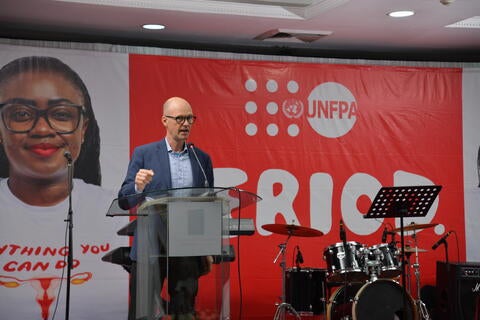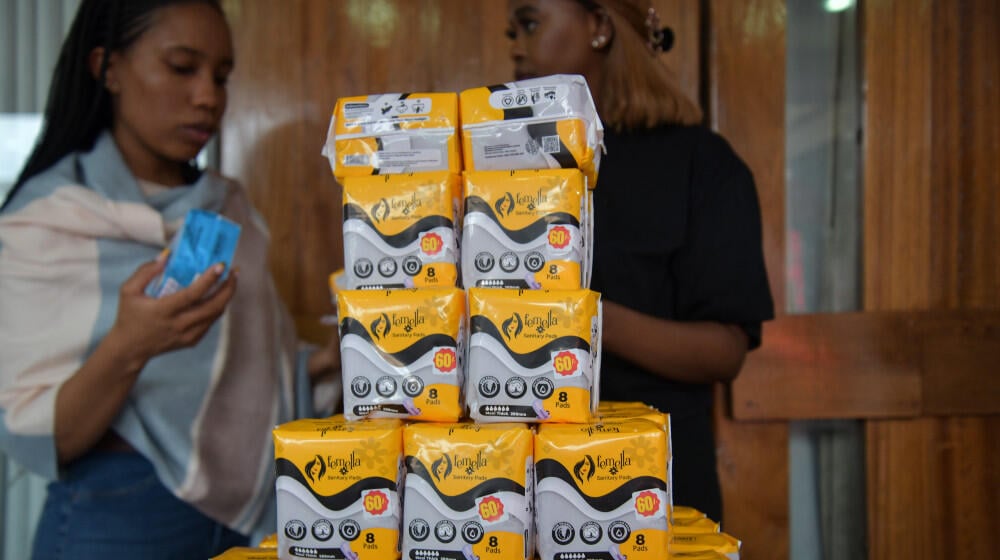Beatrice Koech is a mother in pain. In 2019, she lost her 14-year-old daughter to suicide, following an incident of period shaming. “My daughter was on her menses but did not have a sanitary pad. She was kicked out of class due to blood stains on her clothes, and the shame affected her so much that she chose to end her life,” narrates Ms. Koech.
The struggle to afford menstrual products is a crisis that affects many Kenyan women and girls, particularly those living in low-income settings. It is one that nominated Senator Gloria Orwoba is working to end, through the Sanitary Towels Provision bill, which seeks to end period poverty by making sanitary pads freely available to all school girls and women in prison across the country.
“Access to menstrual products is a matter of human dignity, and no woman or girl should have to suffer shame or stigma for a natural process,” says Senator Orwoba.
UNFPA joined Senator Orwoba and partners in marking menstrual hygiene day with the launch of Glo’s Pad Bank, an initiative that seeks to collect sanitary pads to be distributed freely to women in need. The event also served as a platform to garner support for the sanitary towels provision bill among legislators and members of the public.
“The tragic case of Beatrice’s daughter serves to illustrate the devastating impact that period poverty can have on a girl’s life. Many are staying away from school because they cannot afford sanitary towels, with lasting consequences on their education and well-being,” said Senator Orwoba.
Data from Kenya’s Ministry of Education shows that a girl that is absent from school for four days in a month up to six weeks of learning time in an academic year.

during the Menstrual Hygiene Day celebration.
Addressing participants during the menstrual hygiene day celebration, UNFPA Representative Anders Thomsen noted that addressing period poverty is beneficial to Kenya’s economy and national development. “Period poverty is not only a health issue, it is also an economic and social issue because it has a direct impact on women’s ability to participate in nation-building,” said Mr. Thomsen.
Speaking during the event, Nairobi County Governor Johnson Sakaja pledged to allocate county budget funds towards the provision of free sanitary towels in public schools to ensure that girls in low-income settings continue to have access to menstrual hygiene products.

collect sanitary pads for distribution to the most needy in Kenya.
UNFPA is working with stakeholders including the Ministry of Health and other partners in government, civil society, and the youth to reach women and girls with menstrual health supplies and information on menstruation and related human rights concerns.
During emergencies, UNFPA distributes dignity kits, which contain disposable and reusable menstrual pads, underwear, and other hygiene supplies. Most recently, UNFPA distributed more than 26,000 dignity kits and 24,000 packs of sanitary pads to women and girls in Kenya in response to the ongoing drought emergency.


